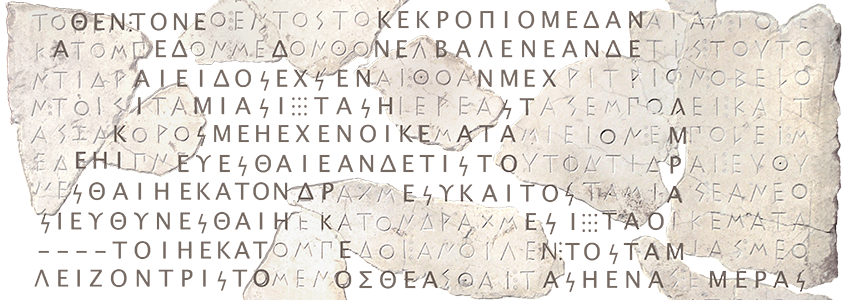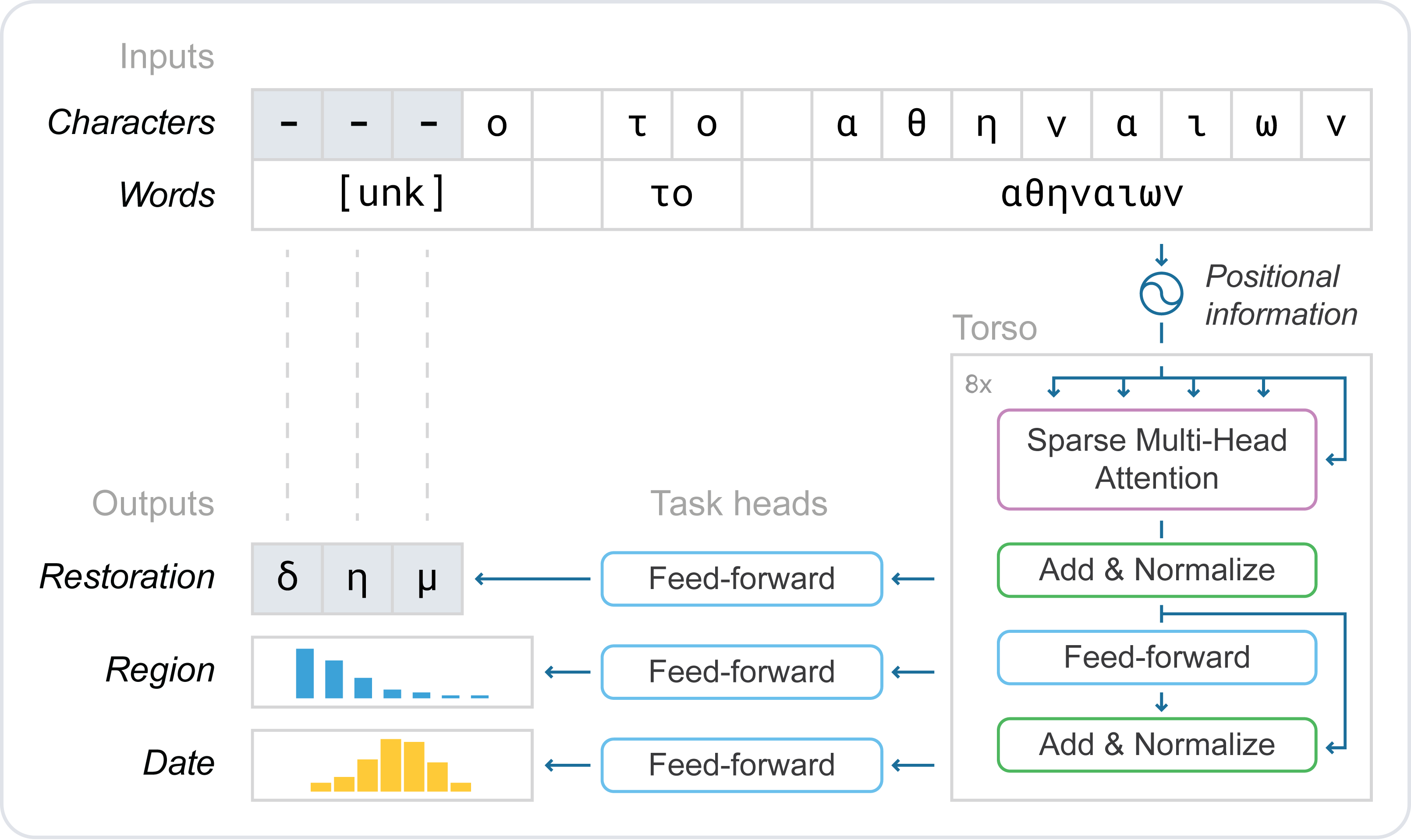Restoring and attributing ancient texts using deep neural networks
Yannis Assael1,*, Thea Sommerschield2,3,*, Brendan Shillingford1, Mahyar Bordbar1, John Pavlopoulos4, Marita Chatzipanagiotou4, Ion Androutsopoulos4, Jonathan Prag3, Nando de Freitas1
1 DeepMind, United Kingdom
2 Ca’ Foscari University of Venice, Italy
3 University of Oxford, United Kingdom
4 Athens University of Economics and Business, Greece
* Authors contributed equally to this work
Ancient History relies on disciplines such as Epigraphy, the study of inscribed texts known as "inscriptions", for evidence of the thought, language, society and history of past civilizations. However, over the centuries many inscriptions have been damaged to the point of illegibility, transported far from their original location, and their date of writing is steeped in uncertainty. We present Ithaca, the first Deep Neural Network for the textual restoration, geographical and chronological attribution of ancient Greek inscriptions. Ithaca is designed to assist and expand the historian’s workflow: its architecture focuses on collaboration, decision support, and interpretability.

Restoration of damaged inscription: this inscription (IG I3 4B) records a decree concerning the Acropolis of Athens and dates 485/4 BCE. (CC BY-SA 3.0, WikiMedia)
While Ithaca alone achieves 62% accuracy when restoring damaged texts, as soon as historians use Ithaca their performance leaps from 25% to 72%, confirming this synergistic research aid’s impact. Ithaca can attribute inscriptions to their original location with 71% accuracy and can date them with a distance of less than 30 years from ground-truth ranges, redating key texts of Classical Athens and contributing to topical debates in Ancient History. This work shows how models like Ithaca can unlock the cooperative potential between AI and historians, transformationally impacting the way we study and write about one of the most significant periods in human history.

Ithaca's architecture processing the phrase "δήμο το αθηναίων" ("the people of Athens"). The first 3 characters of the phrase were hidden and their restoration is proposed. In tandem, Ithaca also predicts the inscription’s region and date.
References
When using any of this project's source code, please cite:
@article{asssome2022restoring,
title = {Restoring and attributing ancient texts using deep neural networks},
author = {Assael*, Yannis and Sommerschield*, Thea and Shillingford, Brendan and Bordbar, Mahyar and Pavlopoulos, John and Chatzipanagiotou, Marita and Androutsopoulos, Ion and Prag, Jonathan and de Freitas, Nando},
doi = {10.1038/s41586-022-04448-z},
journal = {Nature},
year = {2022}
}
Ithaca inference online
To aid further research in the field we created an online interactive python notebook, where researchers can query one of our trained models to get text restorations, visualise attention weights, and more.
Ithaca inference offline
Advanced users who want to perform inference using the trained model may want
to do so manually using the ithaca library directly.
First, to install the ithaca library and its dependencies, run:
pip install .Then, download the model via
curl --output checkpoint.pkl https://storage.googleapis.com/ithaca-resources/models/checkpoint_v1.pklAn example of using the library can be run via
python inference_example.py --input_file=example_input.txtwhich will run restoration and attribution on
the text in example_input.txt.
To run it with different input text, run
python inference_example.py --input="..."
# or using text in a UTF-8 encoded text file:
python inference_example.py --input_file=some_other_input_file.txtThe restoration or attribution JSON can be saved to a file:
python inference_example.py \
--input_file=example_input.txt \
--attribute_json=attribute.json \
--restore_json=restore.jsonFor full help, run:
python inference_example.py --helpDataset generation
Ithaca was trained on The Packard Humanities Institute’s "Searchable Greek Inscriptions" public dataset. The processing workflow for generating the machine-actionable text and metadata, as well as further details on the train, validation and test splits are available at I.PHI dataset.
Training Ithaca
See train/README.md for instructions.
License
Apache License, Version 2.0
